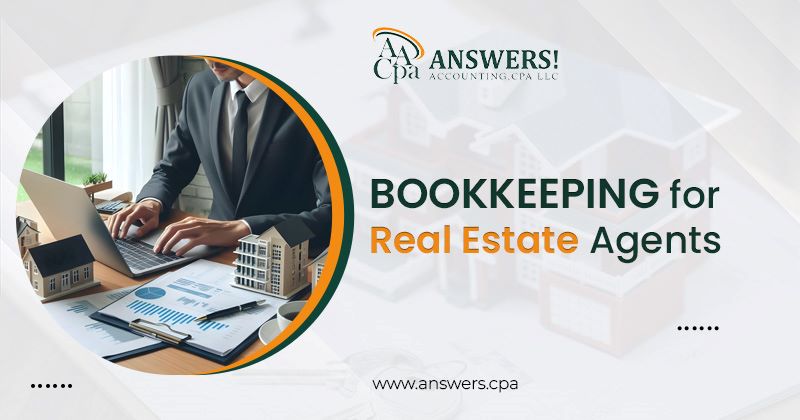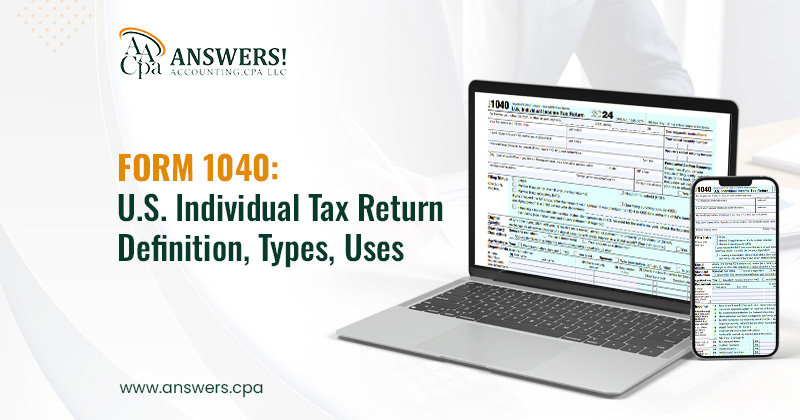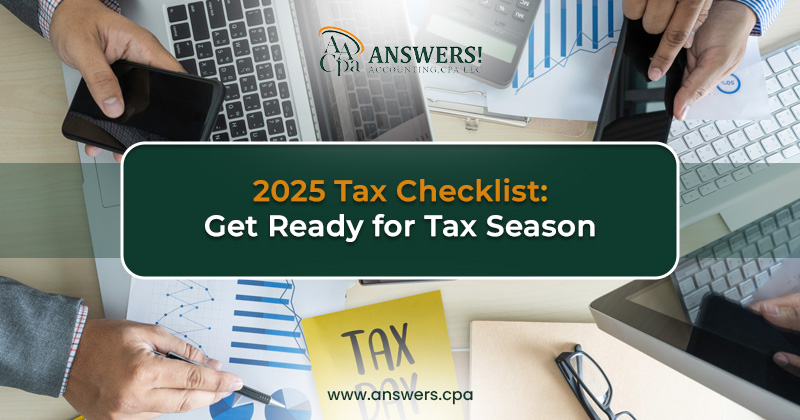Maximize Profits Bookkeeping for Real Estate Agents & Investors
For any business, finances are important, but for real estate agents and investors, it can be a real nightmare. While you are running your organization, you may not have enough time to think about the proper organization of your file system. But only with good bookkeeping can one remain healthy in terms of finances, make correct choices, and take advantage of taxes during this period. Real estate agents and investors need to know that their profession cannot be devoid of some elements from other areas, while they operate separately. This blog will explain why bookkeeping is vital in our industry. It is different from other fields. We will seek solutions through Answers Accounting CPA.
Why is Bookkeeping Crucial for Real Estate Agents & Investors?
A profession in real estate agencies includes sales, marketing, and service. You may be self-employed or work at a brokerage. Either way, you must handle finances. It's a requirement. In this field, where commissions and expenses often fluctuate, accurate records are therefore necessary to be maintained.
1. Tracking Income and Expenses: Real estate agents have a tough time managing their finances because of income that relies on commission which keeps on changing. Hence, an irregular cash flow makes it difficult to maintain a budget. You need bookkeeping that will accurately record your earnings. It must also tell you when to expect your payments.
2. Tax Preparation and Deductions: One of the biggest advantages of accurate bookkeeping is during the tax season. Real estate agents can claim several deductions, such as:
- • Marketing and advertising expenses
- • Home office deduction
- • Vehicle expenses (mileage, gas, and maintenance)
- • Continuing education and professional development
- • Client entertainment
Without clear records, you risk missing out on these valuable deductions, leading to higher tax liabilities. Good bookkeeping ensures you have the necessary documentation to back up your claims, making tax filing a much smoother process.
3. Budgeting and Financial Planning: To operate a successful real estate business, you must have a good understanding of your finances. Bookkeeping helps you monitor cash flow so that appropriate budgets may be prepared taking into account both lean months and busy seasons.
Good financial records enable one to easily set aside amounts for taxes, reinvesting into their businesses, or save for future expansion.
4. Legal Compliance: Accurate books are vital for compliance with financial rules. Whether working as an independent agent or under a brokerage, you must keep proper tax records. You must also meet state and federal licensing requirements. Not doing this may attract fines that can ruin your reputation and business.
5. Business Growth: Knowing about finances helps make informed business decisions. Some may be overspending on marketing with little return. Others might consider changing prices or commissions to boost profits.
Bookkeeping Basics for Real Estate Agents
Now that we understand the importance of bookkeeping, let’s look at the key components that make up an effective system for real estate agents.
1. Separate Personal and Business Accounts: Many real estate agents mix their personal and business finances. This is a common mistake. Keeping separate bank accounts and credit cards for your business will help you track what goes in and out as well as keep good records and minimize confusion during tax season. This is a simple but significant way to make your finances more manageable.
2. Track Commissions and Fees: Real estate agents earn commissions. They tend to fluctuate, unlike other industries. This depends on sales volume and property values. Thus, it’s necessary to ascertain how much you get as earnings before deducting brokerage fees, marketing costs, or referral payments from gross income. You may benefit from a program that categorizes transactions so you know precisely how much exactly you’ve made in all expenses including profits at any moment’s notice.
3. Expense Management: Keep a detailed record of every expense, no matter how small. Expenses could include:
- • Marketing materials (flyers, website, digital ads)
- • Transportation costs (vehicle maintenance, parking fees, mileage)
- • Client meals or entertainment
- • Office supplies and utilities
- • Real estate licensing fees
- • Education and certifications
4. Use Accounting Software: In recent times, there isn’t anyone who can be found entering data into spreadsheets manually. Modern bookkeeping programs, like QuickBooks and Xero, automate most tasks. So, they keep finances up-to-date. These tools keep track of incomes, expenditures, and even distances traveled for tax purposes. Some programs are for real estate professionals. They help to categorize transactions, generate reports, and stay organized.
5. Hire a Professional Bookkeeper: Some real estate agents do their bookkeeping. Others hire professionals to do it for them. A certified bookkeeper ensures that your financial records are accurate and current, thus saving you time as well as stress. In addition, they offer insights into your financial health while helping you plan.
Common Bookkeeping Challenges for Real Estate Agents
Inconsistent revenue streams can be common in real estate, and these should be tackled head-on to avert any pitfalls.
- 1. Unstable Incomes: During unsteady market periods, relators may think that they have pretty strapped finances due to lower sales. This could hinder cash flow predictions and expenditure management. A bookkeeping system working well helps in solving the flatness by examining money coming in or going out through time.
- 2. Mileage Record Keeping: Property showings, meetings with clients, and inspections take a lot of time for agents who spend most of their time on the road driving around town. It is important to keep accurate records of your mileage when it comes to tax-related vehicle deductions. Furthermore, most software has GPS attached that monitors movement and categorizes trips as well as saves time.
- 3. Commission Split: If employed in an agency or working with others within the same industry, then you might be required to share commissions with them. So, you must now know not just your compensation. You must also know of any costs that come with it. This complicates bookkeeping further.
Tips for Better Bookkeeping as a Real Estate Agent
While bookkeeping may seem like a daunting task, here are some tips to make it more manageable:
1. Create a Routine: Set aside time each week to review and update your financial records. Consistency is key to ensuring your bookkeeping stays organized and accurate.
2. Keep Digital Records: Use cloud-based storage solutions like Google Drive or Dropbox to keep digital copies of receipts, contracts, and invoices. This not only makes organization easier but also ensures your records are safe and accessible.
3. Reconcile Accounts Regularly: At least once a month, reconcile your bank and credit card statements to ensure all transactions are recorded correctly. This helps catch any discrepancies early on and keeps your records accurate.
4. Use Professional Help: If you're not confident in managing your books or simply don't have the time, consider hiring a professional bookkeeping service like Answers Accounting CPA to take over. With their expertise, you can rest easy knowing your finances are in order, allowing you to focus on what you do best, selling homes.
How Answers Accounting CPA Can Help Real Estate Agents
At Answers Accounting CPA, we understand the unique challenges real estate agents face when it comes to managing finances. We offer specialized bookkeeping services tailored to meet the needs of real estate professionals. Here’s how we can help:
-
• Customized Bookkeeping Solutions: We offer personalized services to ensure your bookkeeping is aligned with your specific business needs, whether you’re an independent agent or part of a brokerage.
-
• Tax Planning and Preparation: Our tax professionals can help you maximize deductions, ensure compliance, and minimize your tax liabilities.
-
• Expense Tracking and Management: We’ll help you keep track of every expense, ensuring nothing is overlooked, and making tax season stress-free.
-
• Financial Reporting: Get clear, concise financial reports that give you a snapshot of your business’s financial health at any time.
-
• Automated Systems: We can set up and manage bookkeeping software like QuickBooks or Xero, taking the manual work off your plate.
Conclusion
Keeping books is not the most interesting task for real estate agents, but it is one of the most essential. It enables you to manage your finances, enhance deductions, and make preparations for long-term success.
Whether you are a beginner or an experienced real estate agent looking to organize your books, we are here to help you at Answers Accounting CPA. Our expert team provides customized services for real estate professionals. This lets you focus on closing deals.
So, what are you waiting for? Contact us now, and we will relieve you of all the stress that comes with bookkeeping!
FAQ’s
- 1. Should I separate personal and business finances?Yes, opening separate bank accounts for your business makes it easier to track expenses, maintain clear records, and avoid confusion during tax season.
- 2. How often should I update my bookkeeping records?Ideally, you should update your records weekly or at least monthly to ensure all transactions are recorded and your books are accurate.
- 3. Can I handle bookkeeping on my own, or should I hire a professional?While some agents manage their books, hiring a professional bookkeeper can save time, reduce errors, and offer valuable insights into your business finances.
- 4. What software is best for real estate agents’ bookkeeping?Popular bookkeeping software for real estate agents includes QuickBooks, Xero, and specialized programs that help track income, expenses, and mileage.
- 5. How can bookkeeping help me during tax season?Proper bookkeeping ensures that all income and expenses are tracked, making tax preparation smoother and helping you maximize deductions.








